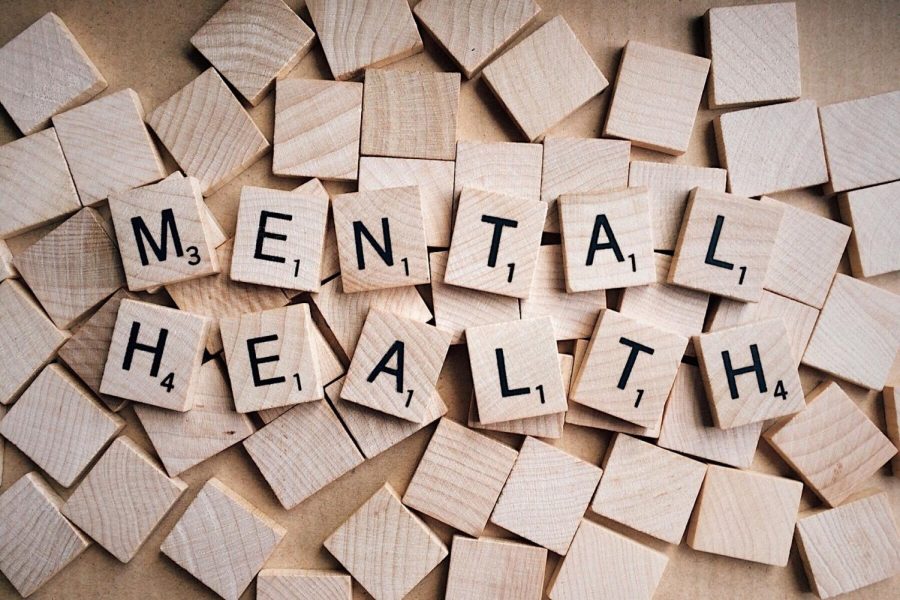Taking A Break
Some States Pass Statutes Making Mental Health Days A Reason To Be Excused From School
Attribution: Image by Wokandapix from Pixabay
Many students are struggling mentally in the face of COVID-19.
February 26, 2021
As students try to adapt to learning during COVID-19 the need for mental health days grows larger. However, feelings are mixed regarding whether mental health days are truly beneficial for students.
What Students Think
Students at Four Corners Upper School have found mental health days to be an excellent opportunity to unwind and destress. Having dedicated time to focus on mental health allows students to come back to school at a 100%, rather than allowing any mental struggles to fester.
“I think that mental health days are important because they kind of help you take a step back from everything that is happening,” senior Breanna Gallo said. “They really just teach you to focus on yourself and just, you know, to have an escape, even if it is just for one day.”
Gallo shared an experience she had taking a mental health day. After being piled up with work in the weeks prior she decided it was time for a day off, although the day she chose was meant to mitigate the amount of instruction she would miss.
“Me and my friends decided, it’s a testing day we’re going to be holding, so we’re not going to go to school. So we went out, got lunch, we went and painted and watched a movie, and it was honestly so therapeutic and instantly changed my mood,” Gallo said. “I had been, you know, miserable for days and then that kind of saved me.”
As a senior, Gallo’s workload had proven itself to be sometimes overwhelming. Trying to earn a Bright Futures scholarship and taking Cambridge courses has not proven easy, especially considering that COVID-19 has not pushed her teachers to lighten the load.
“It’s just a lot, because I have people telling me, I’m not good enough and then sometimes I get overloaded with work, because some of our deadlines overlap,” Gallo shared. “So that’s also been part of the reason why sometimes I do take mental health days because it just gets too overwhelming for me, when all those assignments are all due at the same time from all these different classes.”
Junior Madyson Shelby described another reason why some students may feel that they are justified in taking time off school. Shelby found that mental health days offer students not just an opportunity to recharge but to focus on any non–academic issues in their lives. School may be the priority for many teens, but sometimes other parts of their lives demand attention.
“Some people have, like, other problems, outside of school. i.e., relationship problems, family problems, just drama in general,” Shelby explained. “And I don’t think that it’s beneficial for kids to go to school, and have those problems, because it’s very hard to focus.”
Focus seemed to be another issue for Freshman Sergio Pinilla, during an unorthodox school year, he found that students were acting out. Pinilla attributed a portion of this misbehavior to the massive amounts of change all students are experiencing.
“I’ve seen many students constantly stay away from people, sitting by themselves. And some of them even refusing to wear masks,” Freshman Sergio Pinilla said. “I think other students are mentally struggling because not everybody’s used to this big change.”
Advice and Self-care
It may be easy to fall into bad habits when many students are stuck at home but taking care of yourself during COVID-19 can help to improve and maintain mental health. Gallo had one key piece of advice for struggling students, advice she had found helped her during some of the more difficult periods of her high school career.
“I would say reach out to somebody, reach out to a counselor, because that really helped me. When I was struggling, I went to Mrs. Giles and she really helped me,” Gallo said. “She helped take everything that I was feeling and helped me rationalize through it and work through it. Don’t try to hide it. Reach out for help, because that’s honestly, it’s so important to be able to acknowledge it.”
Health teacher and counseling intern Mrs. Rebekah Giles recommended more general health tips for students to implement in their daily lives.
“As a health teacher, it’s important to eat right, it’s important to exercise. And this just isn’t, you know, to look good. This is daily maintenance,” Giles said. “This is for your heart, your brain, and your mental health. Everything is affected by what you eat and the amount of movement you get.”
Giles also found herself disagreeing with some students regarding mental health days, not finding them necessary or helpful in the long run, unless students were attending an appointment with a therapist.
“I personally have an issue with mental health days, because I think if you’re taking care of yourself, and you’re doing what you’re supposed to be doing, maintaining a balance and everything. You don’t need mental health days,” Giles explained. “I think people call it a mental health day as a cop out because they don’t want to take the steps to take care of themselves the right way.”
While some students hold the belief that mental health days improve their ability to perform academically by allowing them to come back stronger, Giles believes that mental health days could have the opposite effect.
“I personally think they hinder everything, because if you keep putting things off, if you don’t deal with what you need to deal with, things are going to just pile on top of each other, and then you’re going to have this big mess of stuff,” Giles shared.
Giles also stressed the idea of not allowing your mental health to be affected in the first place. She explained that learning important skills such as prioritizing or time management can help reduce student stress, giving students a more long-term solution. She explained that the reasons students are struggling so much is because many do not understand how to prioritize and manage their time.
“I think we have so many resources at our fingertips that we don’t use because we’re too lazy to. The first one being an agenda, a planner. I think that we don’t do a very good job of teaching our kids time management skills,” Giles said. “Time management and just routine maintenance and having a routine, I think would do wonders, and just get the ball rolling for people to do what they need to do.”
Overall, there is some discrepancy within what a mental health day should be, and whether they are ever justified. However, Gallo seemed to find common ground, leaving a message for those mentally struggling.
“There’s always going to be a light at the end of the tunnel,” Gallo said. “When you find somebody, or a group of people, or a hobby that you love, it just gets so much better.”



